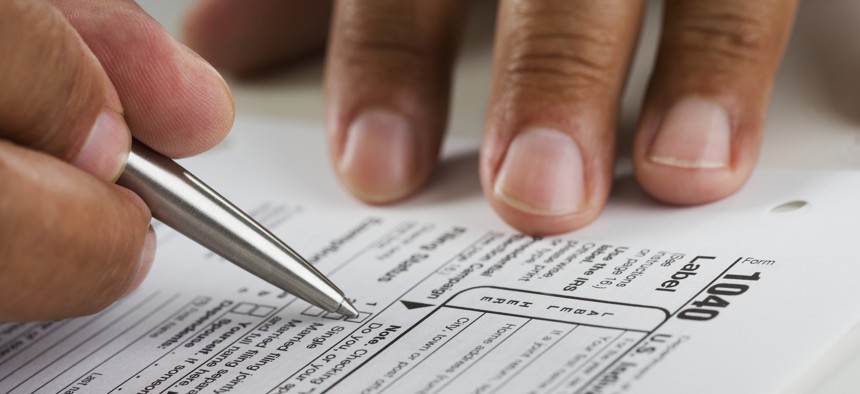IRS watchdog questions taxpayer demand for direct file services

JGI/Getty Images
A recent oversight report questions whether taxpayers are actually as interested in a direct, government-run tax filing tool as the IRS claims.
The Treasury Inspector General for Tax Administration is questioning whether taxpayers are really interested in a free, government-run tax filing system fielded by the IRS.
In a report issued Monday, the watchdog asserts that “taxpayer interest in a direct file tool may be overstated due to the design of the surveys conducted.”
The IRS announced in May that a direct tax filing system will be piloted in the coming tax season.
The Inflation Reduction Act gave the IRS $15 million to report on a direct file program’s cost and feasibility, as well as what taxpayers thought of the idea.
The oversight report comes as Democrats and civic tech organizations have rallied around the tax agency's plans, while some Republicans have condemned the direct file system as well as the agency’s decision to use think tank New America as its provider of third party input for the study.
The tax preparation industry also has a stake in the game. The IRS had previously arranged for tax prep companies to offer free services to eligible taxpayers while the IRS stayed out of that market. For now, the IRS says the current iteration of the "Free File" program is around until at least 2025, but heavy-hitters like H&R Block and Intuit are no longer participating. Both companies separately told Nextgov/FCW that the direct file plan is "a solution on search of a problem."
The TIGTA report digs into survey design used by the IRS as it was studying the potential for a free, direct e-file tool.
The questions on such a tool, included in a larger, annual Taxpayer Experience Survey in 2022, didn’t offer a “neutral” option for participants, leaving respondents in what the IG calls a “forced choice” scenario when asked about a direct file program.
The survey found that 72% of respondents said that they were somewhat or very interested in a direct file tool, with 28% of the total saying that they were very interested.
The watchdog is also concerned that the survey may not have been up front about the tool's limitations – specifically that it wouldn’t include the ability to file state returns. That's a feature typically expected by taxpayers but difficult for the IRS to do because of privacy laws governing the agency.
The IRS isn’t planning to offer state tax return filing in the initial pilot, according to the inspector general report, although it “has been working with states and other stakeholders to include limited state income tax filing information sharing to help facilitate state tax return filing for the taxpayer.”
A separate, independent study included in the IRS report to Congress found that 60% of simple tax return filers would opt to continue with whatever they currently use to file taxes if the IRS doesn’t include state returns in its tool.
The IRS also stated that the response options to survey questions on direct e-file were set up the same way that the other questions in that survey were, and that it had already pointed out “the potential for interest in direct file to be overstated and influenced by a number of issues” in its own report on the potential pilot.
The agency has previously emphasized that the forthcoming pilot isn’t necessarily an indication the IRS is permanently going to offer this tool.






